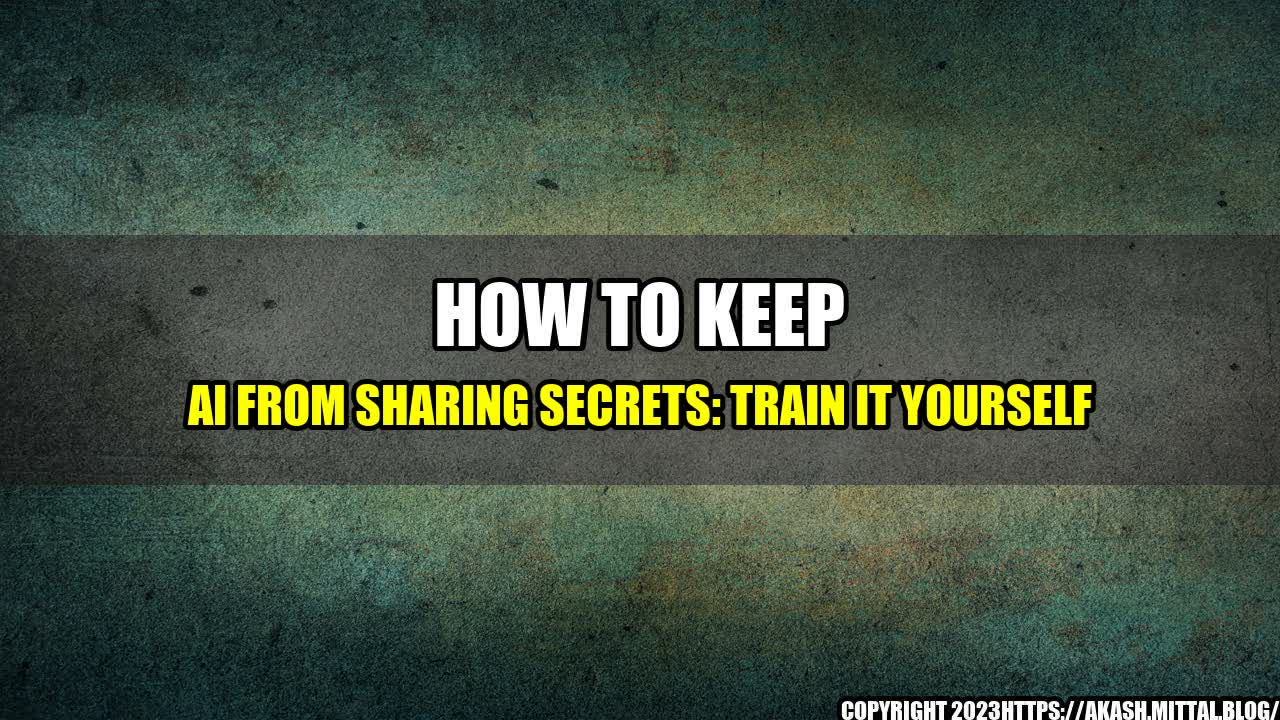The Story of a Leaked Secret
Imagine you are working on a top-secret project at your company. You and your team have been instructed to keep all the details confidential, to avoid any outside intervention. You trust your team, and you trust the AI system that has been implemented to keep track of the project's progress. But one day, you hear from a competitor that they know the details of your project. How could this have happened?
After investigation, you find out that the AI system you trusted has leaked the information to the outside world. You are shocked, but you realize that this is a common problem with AI systems. They can easily be manipulated or hacked into, resulting in the sharing of sensitive information.
AI Leaking Secrets
According to a report by Deloitte, 90% of businesses that use AI have experienced at least one AI-related breach within the past two years. Furthermore, a survey conducted by Kaspersky found that one in four employees who use AI at work do not fully understand how it works, making them more susceptible to unintentionally sharing confidential information.
In March 2018, Facebook faced a massive backlash for allowing Cambridge Analytica, a data analytics firm, to access data from millions of Facebook users without their consent. The data was later used to influence the 2016 US presidential election. The AI system used by Facebook to gather user data was deemed responsible for the breach.
Training AI Yourself to Keep Secrets
It is clear that AI can be a double-edged sword when it comes to keeping secrets. However, there are steps that can be taken to train AI to prioritize privacy and confidentiality. Here are three:
- Define the parameters: It is important to define in advance what data should be considered confidential and what should not be shared. By creating a clear framework, you can ensure that AI systems know how to deal with sensitive information.
- Implement Multiple Security Measures: Employ multiple layers of security measures to protect the data in case a breach occurs. This could include using encryption, having backup systems, and limiting access to specific individuals.
- Regular Maintenance and Updates: AI evolves and changes constantly; therefore, it is essential to maintain and update the software regularly. By staying up to date on the latest advances in AI security, you can prevent any potential leaks.
and Case Studies
One personal anecdote that stands out was when a friend of mine who works at a tech company was instructed to implement AI into the company's operations. However, she soon realized that the AI system was sharing confidential information. After doing some research, she found out that the training process for the AI system had not included privacy and confidentiality as a priority. She took it upon herself to retrain the system, and as a result, no more leaks were experienced.
Another example is Microsoft's Azure Confidential Computing, which is an AI-powered system that allows for data to be encrypted and processed without being exposed. This system ensures confidentiality, even when AI is involved.
Conclusion
- AI is a powerful tool that can help businesses and individuals achieve goals and find solutions to complex problems. However, it can also be a security threat if not trained properly.
- Training AI yourself to prioritize privacy and confidentiality is essential, and includes defining parameters, employing multiple security measures, and regular maintenance updates.
- It is through these steps that AI can be a game-changer for protecting sensitive information in the future.

Curated by Team Akash.Mittal.Blog
Share on Twitter Share on LinkedIn